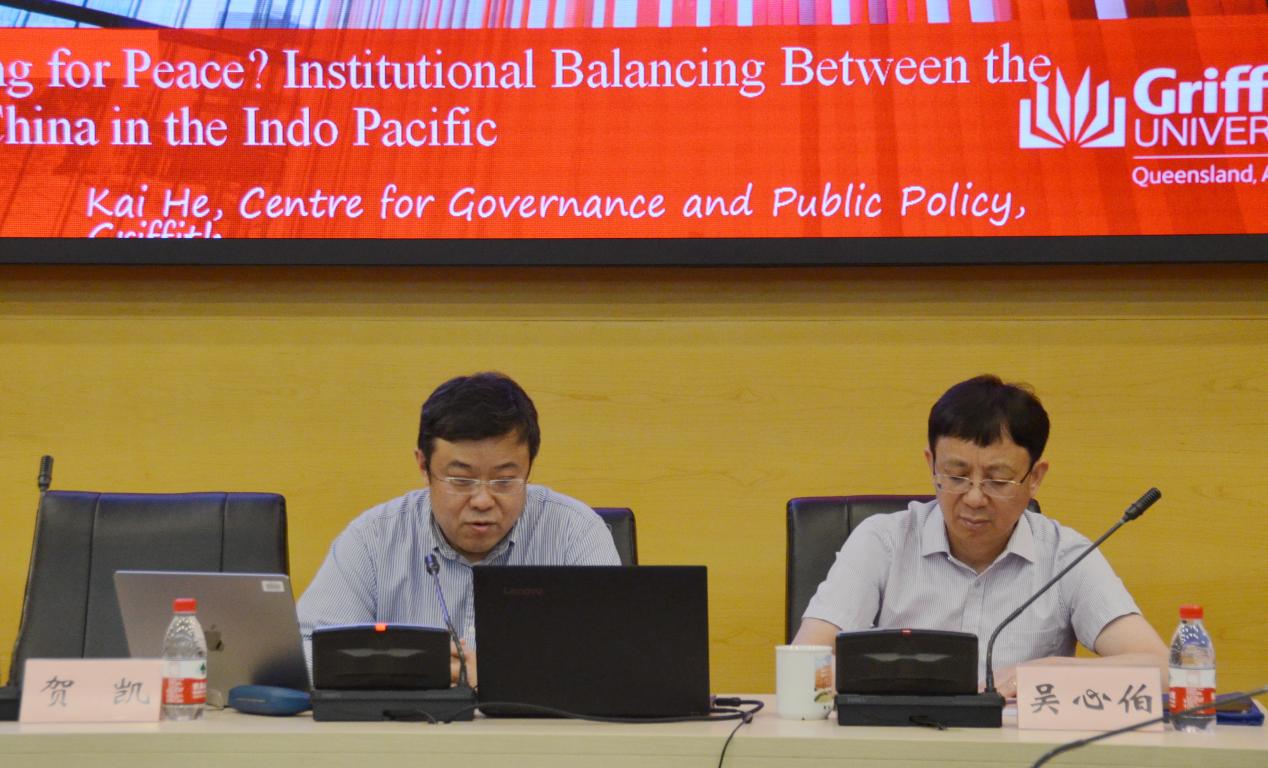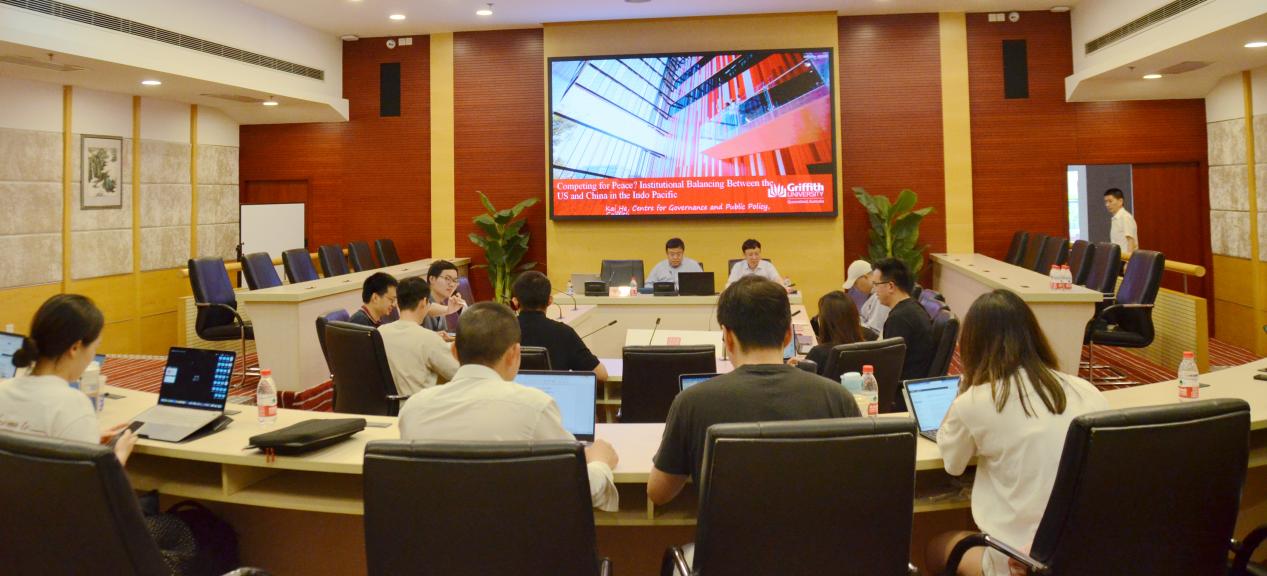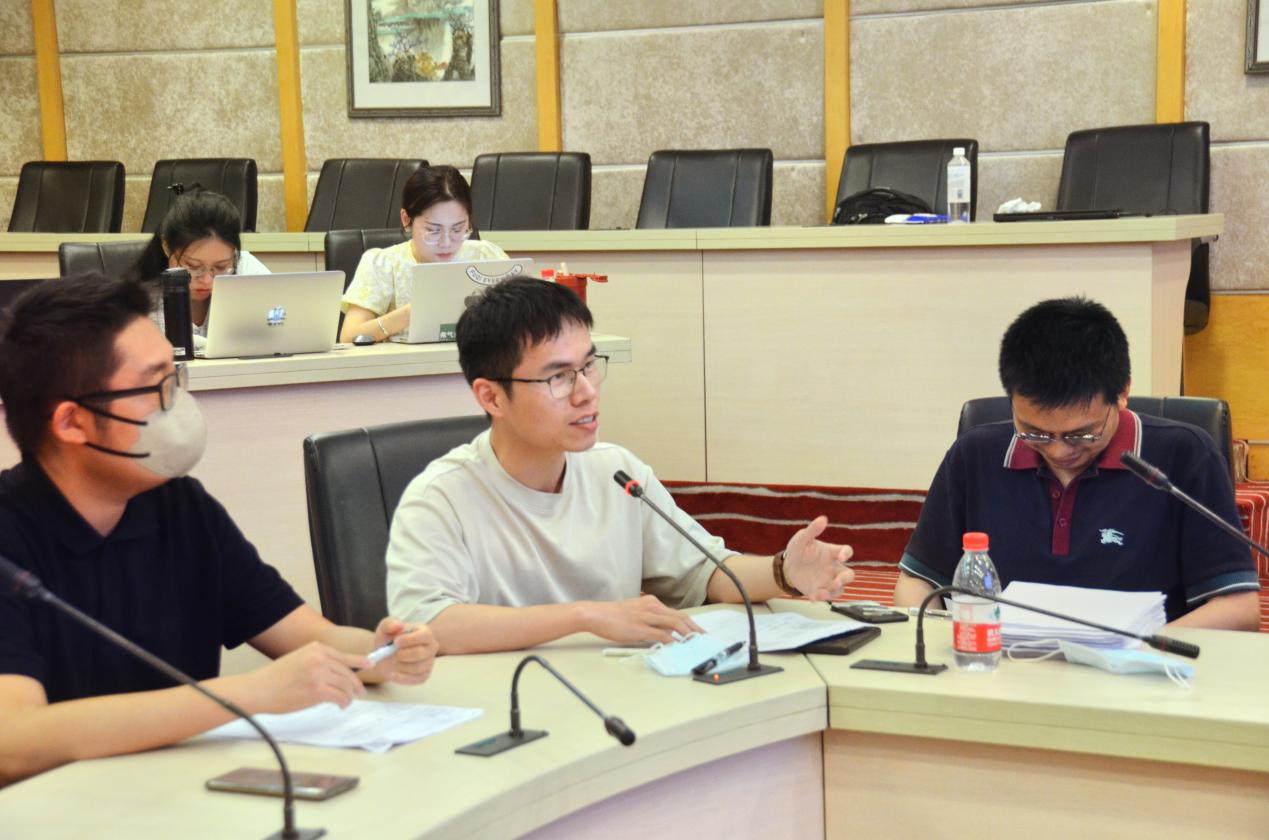On June 27, 2023, the Institute of International Studies at Fudan University conducted a Ph.D. Candidates Workshop on International Studies, featuring the topic Peace under Competition? Sino-American Institutional Balancing in the Indo-Pacific Region. The workshop was headlined by Professor He Kai, Director of the Centre for Governance and Public Policy and Professor of International Relations at Griffith University in Australia. Professor Wu Xinbo, the Dean of the Institute for International Studies and Director of the Center for American Studies at Fudan University, presided over the workshop. The event was attended by an engaged group of more than 20 teachers and students majoring in international politics.

During his lecture, Professor He Kai provided an analysis of the current Sino-American strategic rivalry across three dimensions: deep mutual interdependence, ideological antagonism, and the potential for military conflict. He suggested that the relationship between the two nations has not escalated into a new Cold War stage. His review from the perspective of institutional balancing shed light on the shift in interaction patterns between China and the US in the Asia-Pacific region since the Cold War's conclusion, noting a transition from inclusive to exclusive institutional balancing strategies. He Kai highlighted the potential positive externalities of institutional balancing, such as bolstering institutional dynamism, fostering regional cooperation, and supplying public goods internationally. He posited that peace promotion through institutional balancing between China and the US hinges on three conditions: sustaining nuclear deterrence, avoiding economic decoupling, and circumventing ideological conflict.

Professor Wu Xinbo offered his insights on the discourse, commending Professor He Kai's analytical framework and logical reasoning. Wu underscored that institutional balancing entails a complex interplay of strategic gambits that could yield both positive and negative outcomes. The peaceful or adversarial nature of institutional balancing, he reflected, depends on which side emerges more adept. He also noted the pivotal role of ASEAN in these dynamics.

The event included an interactive session where participants engaged in a robust discussion on a range of topics, including the definition of institutional competition and balancing between China and the US, the dynamic shifts in institutional balancing strategies, the nature of strategic institutional competition, and the interplay between domestic politics and international relations.






